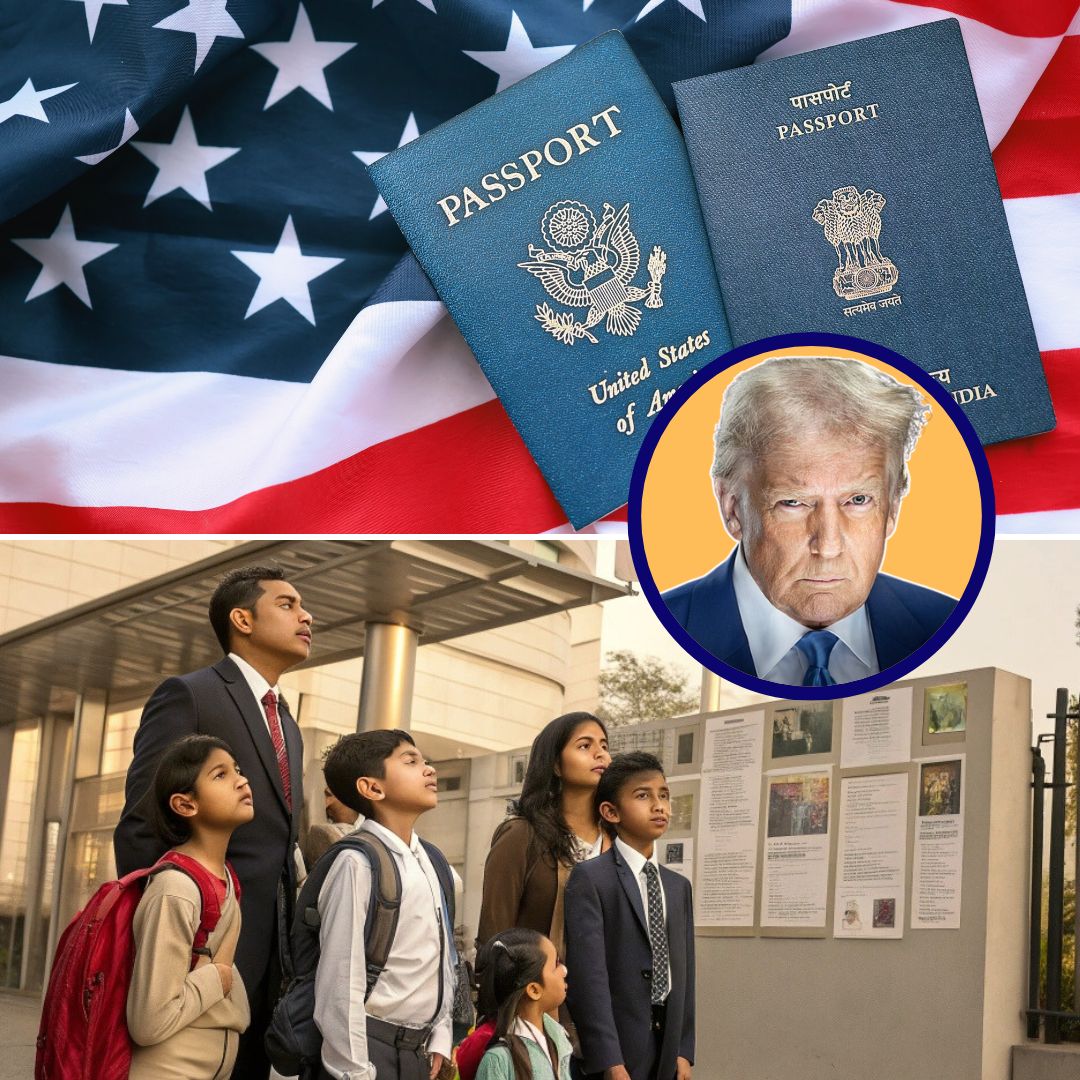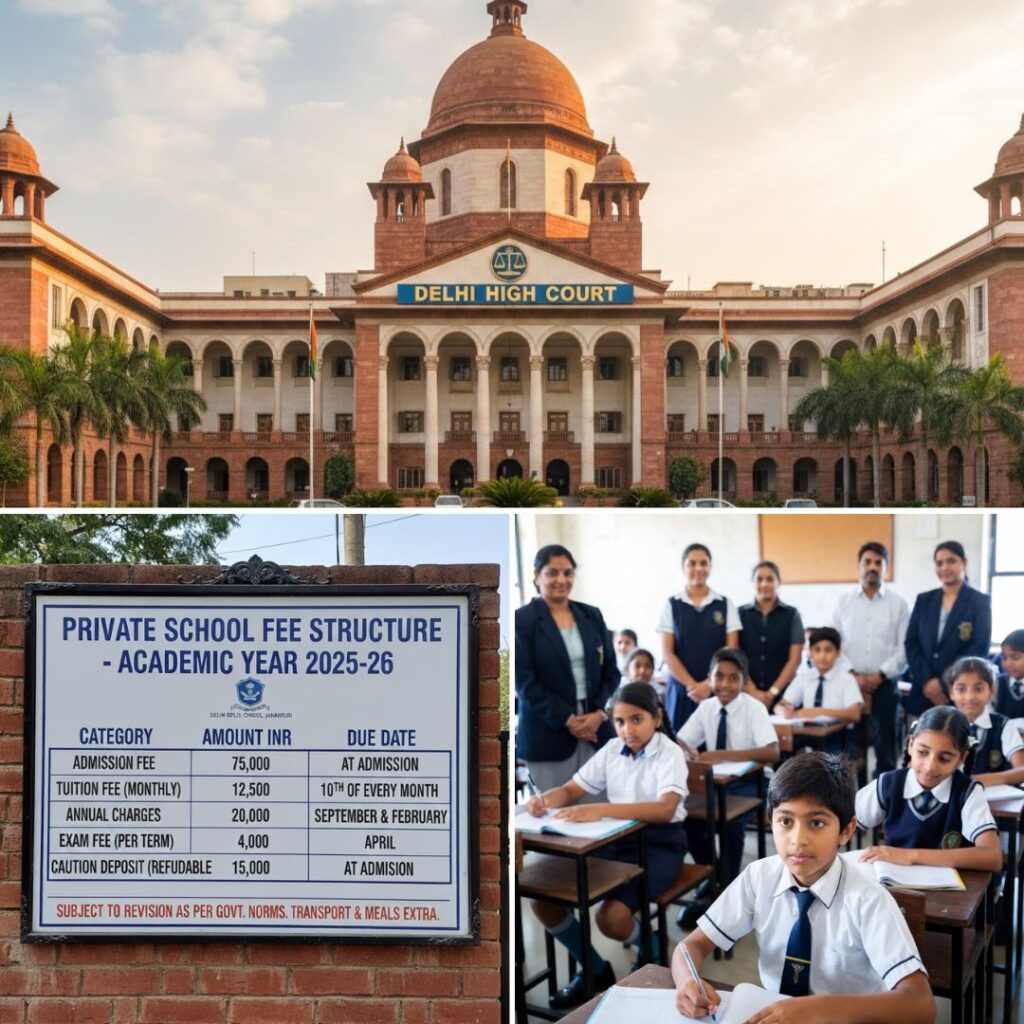Indian nationals planning to visit the United States for tourism, study, or work will soon face a mandatory $250 ‘Visa Integrity Fee’ on most non-immigrant visas, effective from fiscal year 2025 under President Donald Trump’s One Big Beautiful Bill Act.
This fee, which will rise annually with inflation from 2026, applies to nearly all non-immigrant visa categories including B-1/B-2 (tourist/business), F/M (student), H-1B (work), and J (exchange) with only diplomatic visas (A and G) exempt.
The fee is non-waivable and must be paid at visa issuance, but may be refunded if applicants strictly comply with all visa conditions. The move has drawn concern from Indian travellers, students, and professionals, as well as educational and business stakeholders, due to the increased financial burden and compliance requirements.
Visa Costs for Indians Set to Soar
The new Visa Integrity Fee is in addition to existing visa application charges, significantly increasing the total cost for Indian applicants.
For example, the cost of a US tourist/business visa (B-1/B-2) will rise from $185 (about ₹15,855) to approximately $472 (₹40,456) when the new fee and other travel-related surcharges such as the $24 I-94 fee and, where applicable, the $13 ESTA or $30 EVUS fee are included.
The Department of Homeland Security (DHS) will adjust the $250 base amount annually based on the Consumer Price Index, making it a recurring and escalating cost.
US-based immigration firm Fragomen describes the fee as a security deposit to encourage lawful conduct among foreign visitors. The fee cannot be waived or reduced for most travellers, regardless of financial hardship.
Strict Compliance and Refund Mechanism
Unlike standard visa fees, the Visa Integrity Fee is refundable only under strict conditions. Applicants must avoid unauthorised work and depart the US within five days of their authorised stay, or secure a lawful extension or status adjustment.
Failure to comply results in forfeiture of the fee, which is then deposited into the US Treasury’s general fund. The DHS is responsible for collecting the fee and overseeing the refund process, with further details expected as the policy is implemented.
Other new charges introduced by the Act include a $24 I-94 fee for all non-immigrant visa holders and additional surcharges for specific categories, none of which are waivable.
Broader Impact and Stakeholder Reactions
The policy is part of a broader effort to tighten US immigration enforcement and is expected to have significant effects on sectors like education and technology, which rely heavily on Indian students and professionals.
Industry experts warn that the recurring, inflation-linked fee could deter prospective applicants and complicate workforce planning for US employers. The fee does not apply to travellers under the Visa Waiver Programme or most Canadian citizens, but will affect the vast majority of Indian visitors and migrants.
While US officials argue the measure will strengthen compliance and reduce visa overstays, Indian stakeholders have expressed concerns about the added financial and procedural hurdles, especially for students and families.
The Logical Indian’s Perspective
The introduction of the Visa Integrity Fee represents a substantial new barrier for Indian travellers, students, and professionals aspiring to visit or work in the US. While the stated aim is to promote lawful behaviour, the policy risks deepening inequities and limiting access for those already facing financial and bureaucratic challenges.
The Logical Indian stands for fair, transparent, and humane migration policies that foster cross-cultural understanding and opportunity. How do you think these changes will shape the aspirations and global mobility of young Indians?











